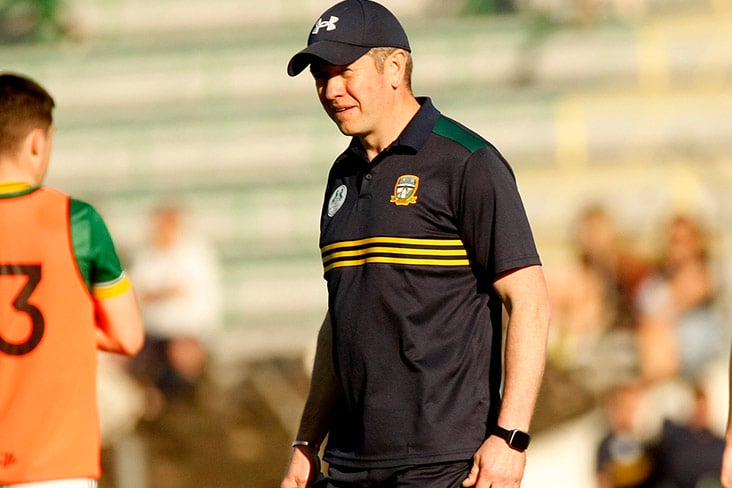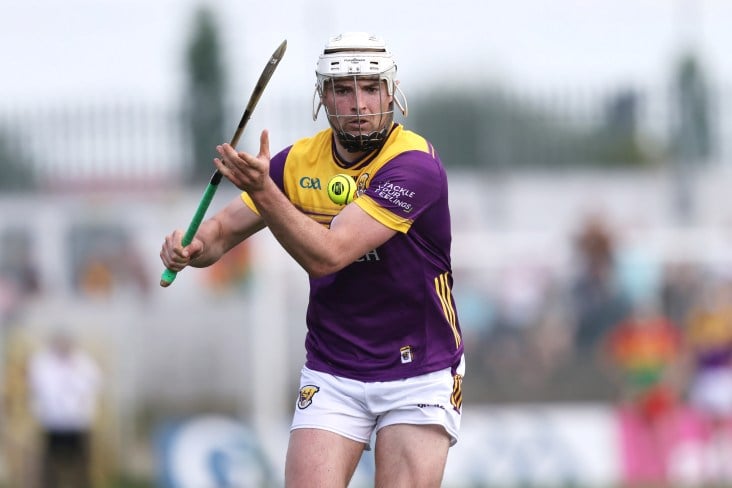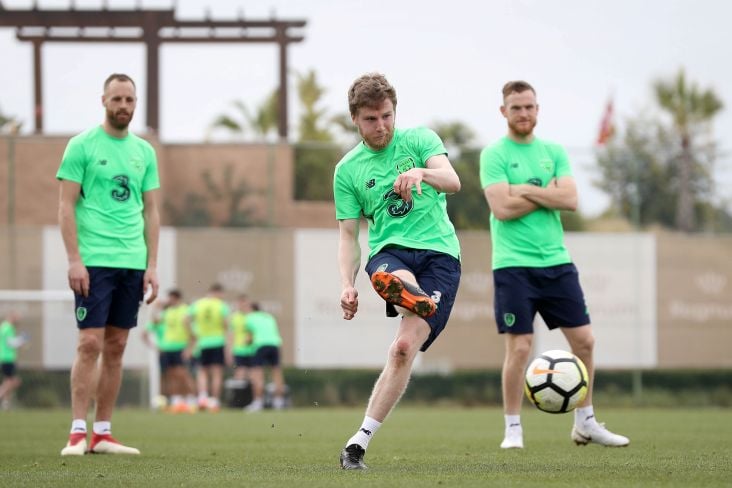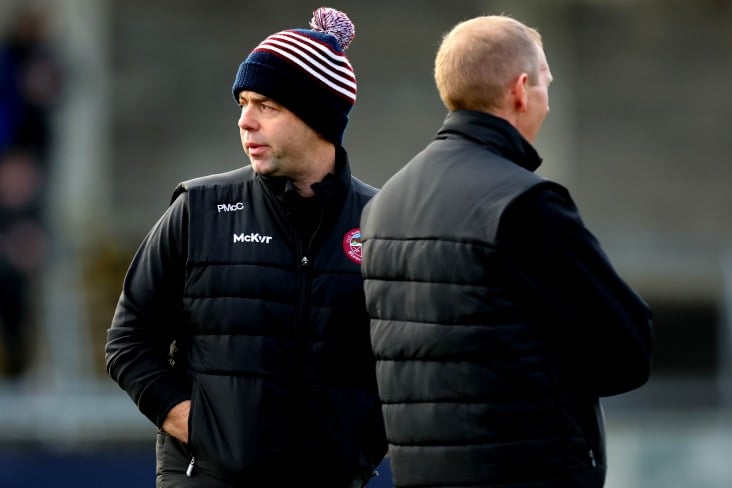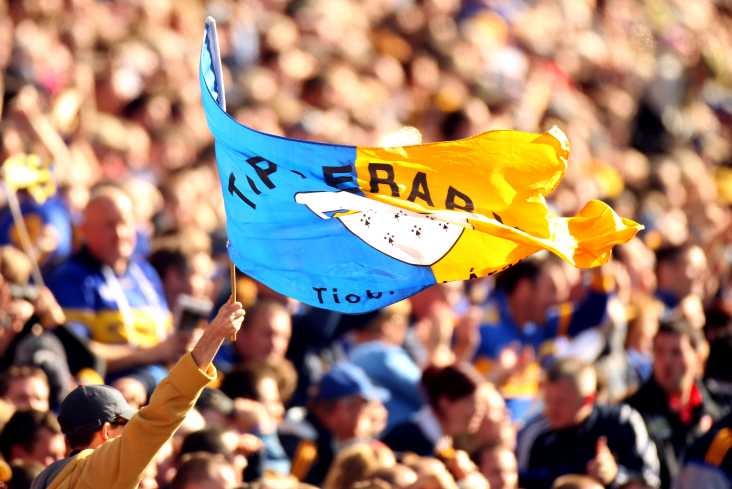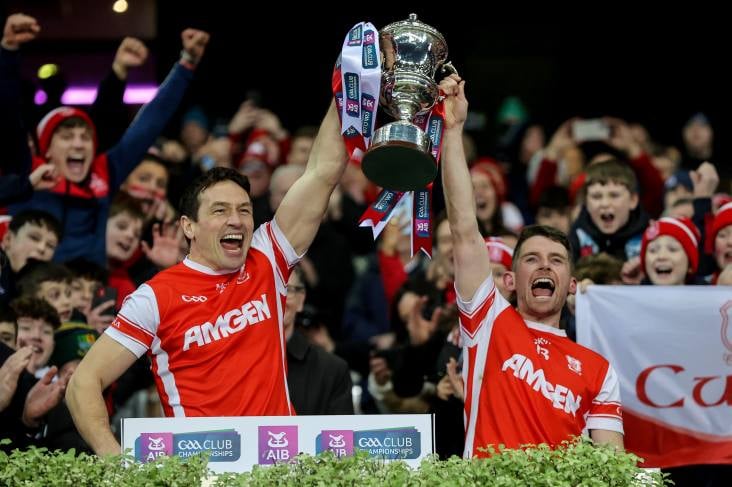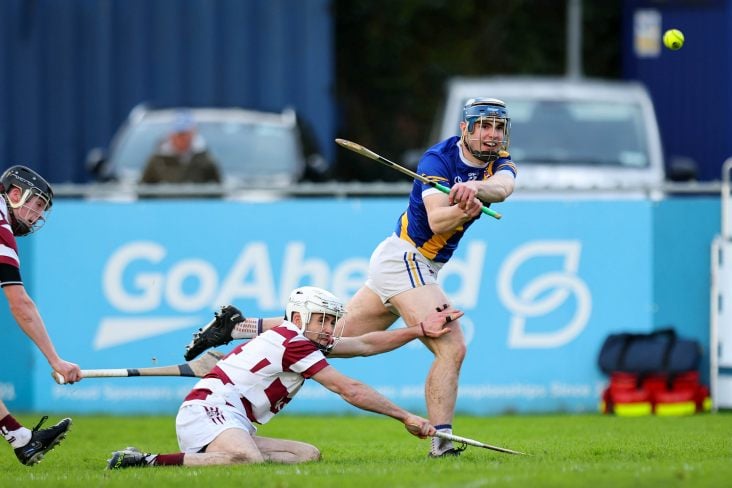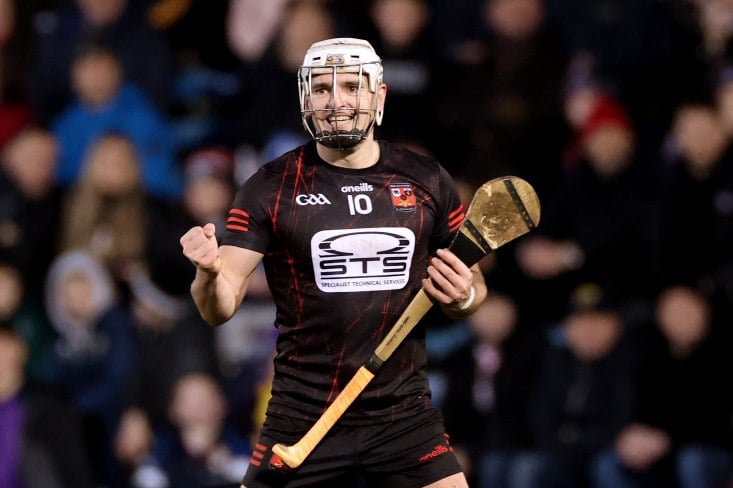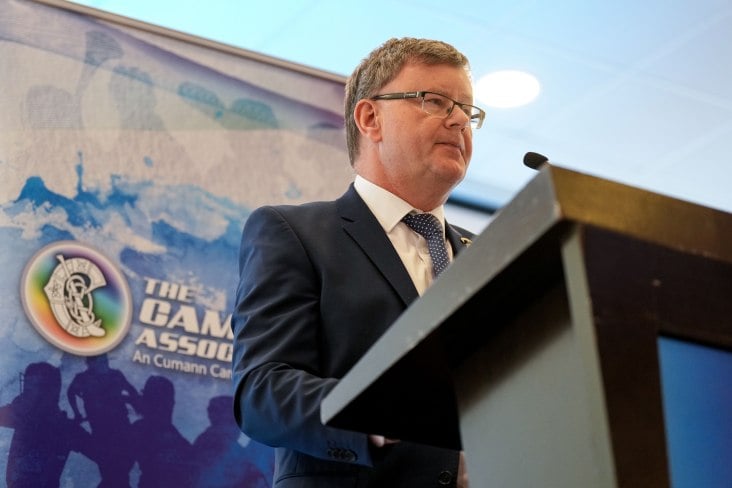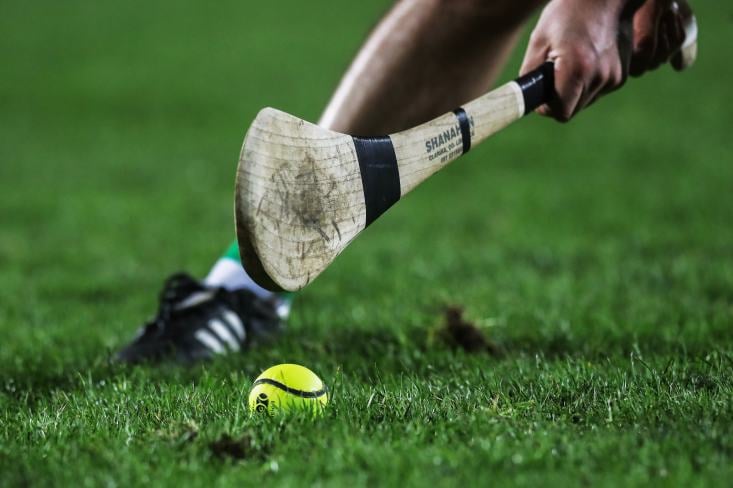Ice Hockey star swaps puck for sliotar in 'The Toughest Trade'
February 09, 2017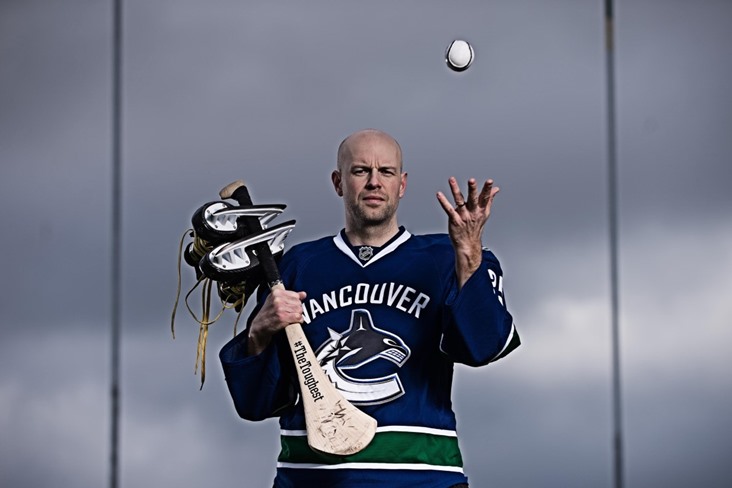
Alex Auld
By Cliona Foley
Canadian Ice Hockey star Alex Auld is the latest signing by creators AIB for its documentary series The Toughest Trade.
Auld has swapped both the puck and club the Vancouver Canucks with Wexford hurler Lee Chin to see how life of an amateur GAA player compares to his 12 years as a pro in the National Hockey League.
On arrival to Wexford hurling club Faythe Harriers, Alex Auld took one look at his counterparts and decided that, after trading sports for AIB's 'The Toughest Trade' documentary recently, it was also time to trade positions.
As a goalkeeper in the world's top ice-hockey league, North America's NHL, the Canadian learnt never to flinch when a puck was coming at him at 100 miles per hour. But during his 12-year NHL career he was padded up with enough body armour to look like a giant sporting Transformer.
So he was shocked to find that hurling goalkeepers wear no form of body protection apart from helmets and quickly volunteered to play outfield during his week in Wexford, where he went from beginner to club hurler in a week as part of the latest AIB's #TheToughest sporting swap.
"I was really surprised. I joked with the goalkeeper that at least they had long sleeves for padding," he quipped. "Even in lacrosse in North America, which is another sport with similarities to hurling, they'll still have some key areas protected. And on top of that you have the shortest shorts in the world!
"When AIB approached me about this trade I accepted it because I missed competing and I also like a challenge," said the 36-year-old from Thunder Bay, Ontario who retired from the professional game in 2012.
"I'd never ever heard of hurling and I tried not to see too much (beforehand) because I wanted to learn on the ground," he explained. "I thought it looked kind of rougher and crazier than it ended up being because I just didn't understand the rules."
It sounds like he adapted pretty quickly in his unique sporting exchange which culminated with playing for the 'Harriers against St Martin's after just a week's intensive training and he said the hardest thing initially was switching up his grip and the soloing and aerial element of the game. But what also fascinated him was the chance to study a completely amateur sport and compare it to his own life as a professional.
He was recruited to the Ontario Hockey League, a 'major-junior' league, when he was 15 and left home a year later. Within 2 years he was drafted to the NHL, initially to the Florida Panthers, and from then played for eight NHL teams in 12 years plus some of their minor league teams. The life of an ice hockey pro is a particularly peripatetic and demanding one.
The regular NHL season, which starts in October to mid-April, involves 82 games alone and, if you reach the playoffs for the legendary Stanley Cup, there's then a series of seven-game rounds. The transfer window is open until March 1 so players can move clubs mid-season and if you're not starting for your NHL club you play in the minor league (the American Hockey League) weekly but can regularly get moved up and down between a franchise's teams.
Auld played in 237 NHL games (and was on the bench for twice as many) with clubs in Florida, Phoenix, Boston, Ottowa, Dallas, New York and Montreal and even in Austria, with Red Bull Salzburg, before he retired in 2012.
But his greatest achievements were with the Vancouver Canucks where he twice made the Stanley Cup playoffs.
"The playoffs are different. One year we were down 3-2 to Calgary and came back to level it 3-all in game six which went to triple over-time. That's a lot of pressure for a goalie. Unfortunately we lost the seventh game in over-time. To win the Stanley Cup is two months of playing every other night plus travelling. It's a grind. It ends in June and the winners will have black eyes, pale skins and scraggy beards because they've been indoors playing all that time. When I played for Montreal (Canadians) we lost to Boston in game seven of the first round in over-time and they won the Stanley Cup that year so you can be like a bounce away from it."
He also starred for his country, winning a bronze medal in the World Junior Championships and finished fourth with Canada's seniors at the 2006 World Championships.
He was particularly keen to do this sporting swap with Faythe Harriers' and Wexford senior Lee Chin to study the difference between amateur and professional sport at close quarters and was particularly impressed with the pride and dedication of the GAA's club players.
"In hurling you're linked from birth to the top level because of where you live. In North America it's the complete opposite, you're a commodity to be bought and sold once you're drafted. I got to meet Lee's family and they explained that basically he's going to play for one club his whole life whereas I played for eight in 12 years. His mom was blown away by that, asking me about my family and if they moved with me. She couldn't imagine him leaving home or playing anywhere else."
He was surprised at some of the similarities between the sports.
"The hand-stick coordination is quite similar to ice hockey, as is the way you use your body to win and protect the ball."
But most familiar was the huge pride he saw in Faythe Harriers' players and officials in their national game.
"That's why I thought this swap made so much sense, because hurling is to Ireland what ice hockey is to Canada. It's our national sport too and there's the same huge pride in that. I loved how it was so community-based here and how important it was that the club invest in their 5-7 year olds. I coach my nine-year-old son's team back in Vancouver and that's our big goal too, that the kids have fun and want to come back to training. That passion is very similar."
Inevitably he was asked which game is actually #TheToughest and Auld genuinely said he could not separate them.
"Ice-hockey players are faster obviously because they're on skates but everything else is pretty similar. The ball moves at speed and the transition in hurling is so quick, I was blown away by how the ball would be at one end of the field and you'd almost feel you could take a break, and then all of a sudden you're back in the battle!
"The fact that there's no padding in hurling adds a special toughness to it. The skating element makes ice hockey tough too but any good hurler who started skating at six like I did would be a good hockey player because there's so many other similarities.
"At the highest level they both take an incredible amount of will and toughness and being able to play through pain. I've seen pictures of guys hurling with helmets and the hurl is bent and the nose is flattened. I really don't think I could rate one tougher than the other but I'm really surprised that hurling isn't known internationally," he added. "I'll definitely be following it from now on and I've told Faythe Harriers that I'll be back when Wexford get back to the All-Ireland final!"
Tweet